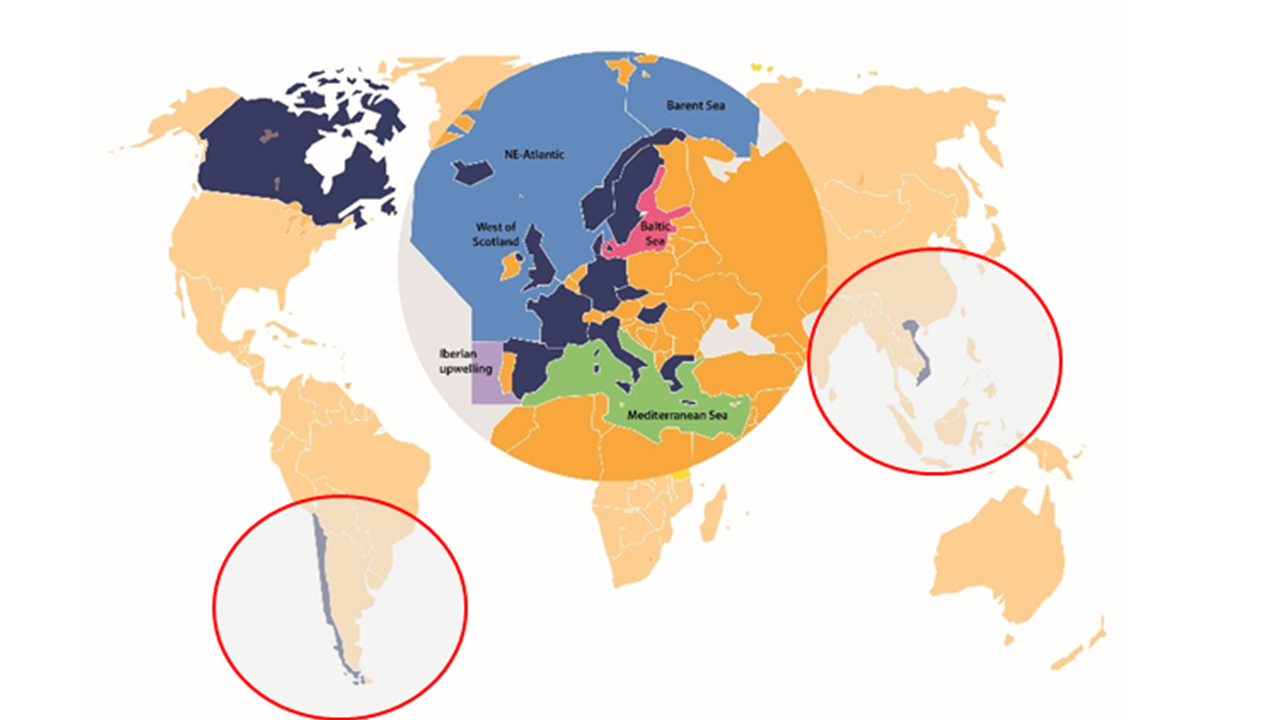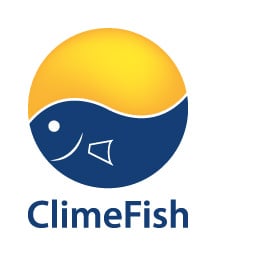non-EU partners

Wondering how Vietnam and Chile are taking stakeholders on board to adapt to CC in fisheries and aquaculture?
In ClimeFish the experience from our non-EU partners is an asset. How they manage stakeholder engagement regarding climate change (CC) issues in fisheries and aquaculture provide us with tips and lessons learnt that become very valuable for the stakeholder involvement on each case study.
Our partners from Nha Trang University (NTU) and from AVS Chile have shared first-hand information on the current status. First, by giving an overview on how CC plans are implemented through different administrative bodies and then, by describing the stakeholders involved in the process.
According to Kim Anh T. Nguyen and Khanh Ngoc T. Quach from NTU: “The effects of climate change events can be mitigated through proper planning and participation by stakeholders at all levels of the administrative rung”. In this regard, the NTU researchers point at a clear understanding of the structure of centres of authority and responsibility that are necessary to visualize how policies on mitigation, coping and adaptation to climate change are formulated.
From NTU, the researchers highlight stakeholders’ participation and implementation of adaptation measures as well as the urgent need to boost stakeholders’ awareness, perception and knowledge of climate change issues in fisheries and aquaculture. They also remark that limiting the effect of environmental degradation on stakeholders’ livelihoods can be achieved by reducing vulnerability, enhancing resilience, and promoting adaptive strategies to CC triggered events. “Efforts to increase perception, awareness and knowledge are urgent and critical for the well-being of the farmers, fishers, industry, forest dwellers, and urban population of Vietnam”, they stated.
In the case of Chile, Pablo Ibieta from AVS Chile explains that the plan and actions on each sector where stakeholders are involved are gathered in the 3rd communication on the progress in the implementation of the United Nations Framework Convention on CC (UNFCCC) goals and principles as part of the requirements of UNFCCC that Chile has committed to fulfil. “The strategy employed in CC adaptation plans is defined towards four sectors, and concerning Fishing and aquaculture, there are 3 specific objectives related to stakeholder engagement: to disseminate CC impacts with the purpose of educating/training stakeholders; to improve standards, political/administrative framework for the challenges/opportunities of CC; and to develop direct adaptation measures aimed to reduce vulnerability and CC impact on fishing and aquaculture”, he said.
Climate change impact in Vietnam
In Vietnam, currently, 70% of the 88 million of the Vietnamese population live in climate change disaster-prone areas. “Fishers and aquaculture farmers are among the most impacted by climate change events. They are financially affected and suffer significant losses from natural disasters from tornadoes and flood damage, temperature increase, salt water intrusion and poor water quality and availability”, the authors said.
When designing a strategy to face these potential impacts, it becomes crucial to identify the targets for these adaptation strategies. In Vietnam, the stakeholders directly influenced by climate change are the government –at the national, provincial and district levels; irrigation authorities -hydropower investors; fishing and shrimp-farming households -including integrated rice/shrimp, catfish and rice farmers.
The question remains how to build the link between the administrative ladder and stakeholders. The Provincial People’s Committee (PPC), an important partner for the office of the National Steering Committee on Climate Change (NCCC) using a bottom up approach works with stakeholders in the public sector and with other individuals in the private sector to ensure that the planning and implementation of programs are appropriate and adequate to respond to climate change triggered events. The PCC aim is to ensure that national policies linked to CC on fisheries and aquaculture are implemented at the provincial level through the Department of Agriculture and Rural Development and sub-committees.
Aquaculture and fishing industry in Chile
From AVS Chile, Pablo Ibieta explains that the climate change office of Ministry of Environment is responsible for the national action plans and proposals. In addition, the main administrative authority responsible for aquaculture and fisheries is the Ministry of Economy, Development and Reconstruction. “The Undersecretariat for Fisheries (Subpesca) and the National Service for Fisheries (Sernapesca) depend on this ministry, the Subpesca provides all the information and technical support required to allow the Minister to take actions and measures towards aquaculture and fishery activities”, remarks Pablo Ibieta.
According to Ibieta, there are four main stakeholders’ groups: the Environmental Ministry and Subpesca/Sernapesca, the aquaculture and fishing industry, the NGOs, and the Academia and research & development institutions. “The fishing industry is especially aware of changes on pelagic/demersal fish distribution and changes in fishing patterns under climate change”, the researcher said, “aquaculture industry (artisanal and industrial) are aware of climate change and impacts, but in general, the industry is dealing with major challenges that threaten the sustainability in the medium-term, that are indeed priorities”.
Key take-aways
The experiences from Chile and Vietnam bring some useful tips to ClimeFish: to visualize how policies are formulated; to boost stakeholders’ awareness by connecting impacts to their well-being; to improve policy frameworks for challenges but also opportunities; to combine strategies in the public and private realm.
Would you like to share any tip or experience for stakeholders’ engagement in CC for fisheries and aquaculture from your country/region? Please send an email to mailto:mnorte@cetmar.org and you may be the protagonist of our next stakeholders’ news.
